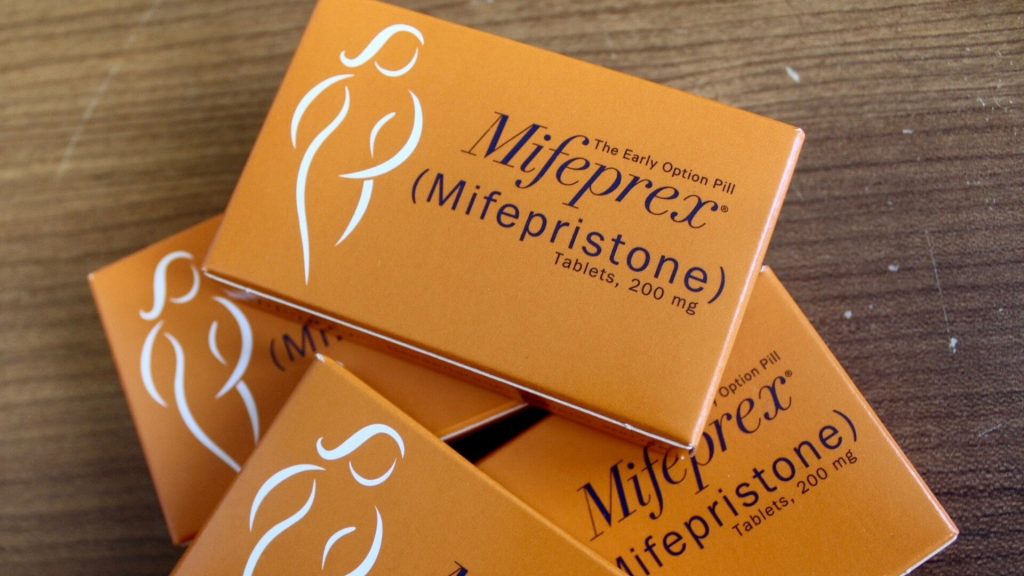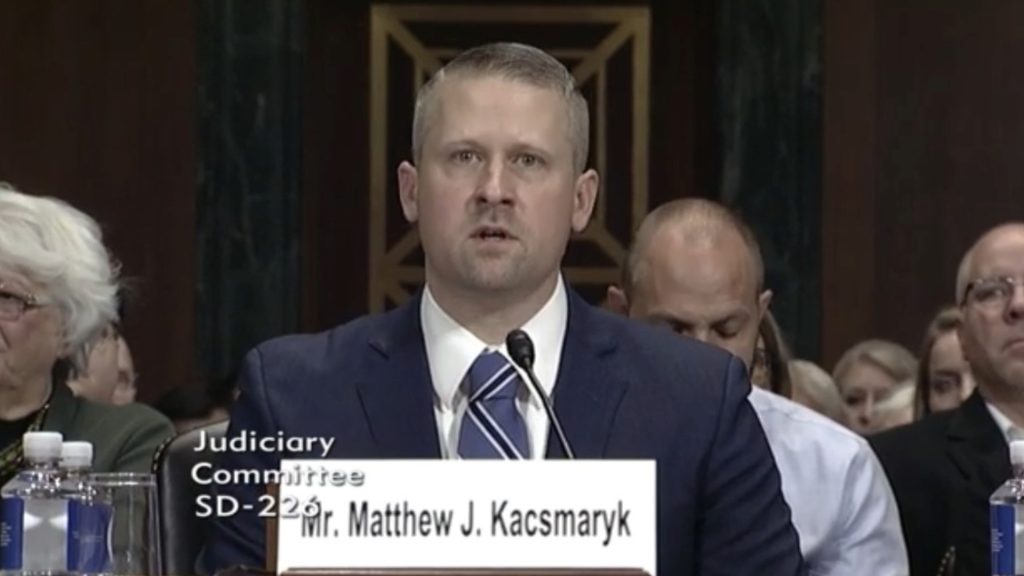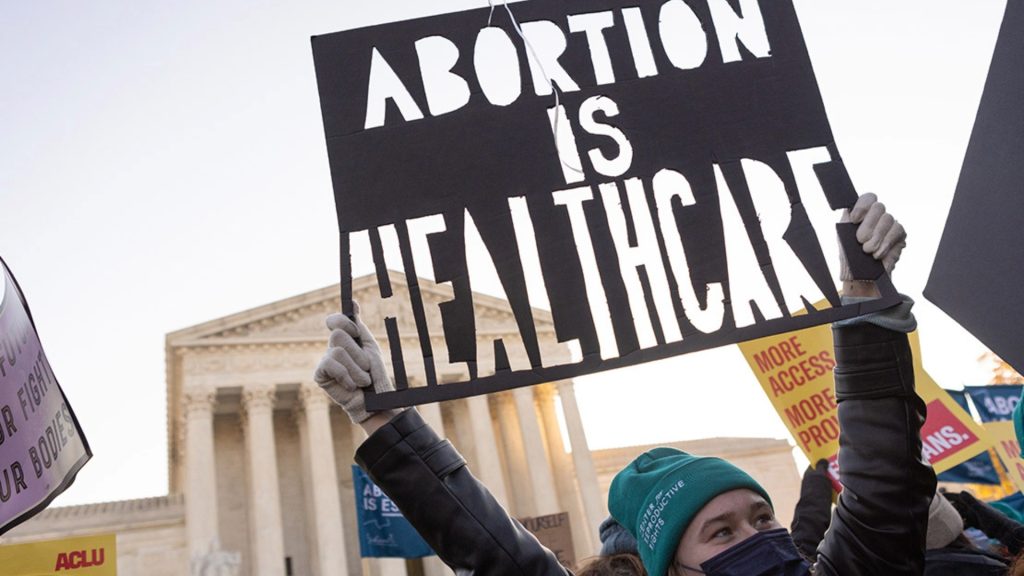The basis for a Texas judge’s controversial ruling to ban abortion pills continues to crumble. U.S. District Judge Matthew Kacsmaryk relied in part on now-retracted studies to justify restricting access to the commonly used drug mifepristone last year.
His reasoning echoed anti-abortion rhetoric rather than sound science, foreshadowing the Supreme Court’s current examination of the politically charged ban. New revelations that advocacy groups conducted flawed studies further erode confidence in Kacsmaryk’s impartiality on this polarizing issue.
Judge Kacsmaryk’s Abortion Pill Ban
U.S. District Judge Matthew Kacsmaryk issued a ruling in 2023 banning the distribution of mifepristone, a commonly used abortion pill. According to reports, Judge Kacsmaryk’s decision was based on three recently retracted studies by Sage Publications due to unreliable methodologies and undeclared conflicts of interest by the authors.

The authors of the studies were found to be associated with anti-abortion advocacy organizations, calling into question the objectivity and validity of the research. One study claimed that mifepristone increased the risk of women going to the emergency room following a medication abortion compared to surgical abortions.
Medical Experts Argue There is No Evidence
However, medical experts argue there is no evidence to support these conclusions and that the studies cited in Judge Kacsmaryk’s ruling amount to “junk science” and “anti-abortion talking points.” The FDA continues to consider mifepristone to be safe and effective when used to terminate pregnancies according to approved indications and protocols.

Judge Kacsmaryk’s ruling is currently on hold pending review by the U.S. Supreme Court. However, the retraction of the studies on which the ruling was based further questions its validity and scientific merit. Access to mifepristone remains legal and regulated by the FDA as an essential medication for women’s reproductive health.
Studies Supporting the Ban Retracted for Junk Science
The peer-reviewed studies Judge Kacsmaryk cited to justify restricting access to mifepristone have been retracted. According to an investigation conducted by Sage Publications, the studies were found to lack scientific rigor and objectivity.

Sage Publications recently retracted three articles that provided the foundation for Judge Kacsmaryk’s ruling prohibiting the distribution of mifepristone. The publishing company discovered the studies were flawed and not impartial. Furthermore, one of the peer reviewers for that study was also linked to an anti-abortion organization, the Charlotte Lozier Institute.
Potential Issues with Studies By Sage Publications
Chris Adkins, a professor of pharmaceutical sciences, alerted Sage Publications to potential issues with the studies. He explained that Sage Publications determined Judge Kacsmaryk’s decision amounted to conservative propaganda lacking scientific validity. However, the current Supreme Court’s conservative majority may not come to the same conclusion when they review Judge Kacsmaryk’s ruling next month.

The retraction of studies buttressing Judge Kacsmaryk’s opinion does not necessarily mean he will issue a new judgment. His initial ruling has been published in the Federal Register. It is common for justices and courts to seek out research that reinforces their views.
Implications of The Retracted Studies
Legal experts are skeptical the retraction of these two studies alone will persuade any Supreme Court justices to change their positions. This is further evidence for justices who already believe the FDA should not be second-guessed and trust its science. Although the studies have been retracted, their impact may endure. In the past, a single discredited study has had real and long-lasting consequences.

For example, Andrew Wakefield’s 1998 paper claiming a link between the MMR vaccine and autism fueled an international panic, even after The Lancet fully retracted it in 2010 upon discovering its scientific flaws and the authors’ conflicts of interest. Today, that paper is still associated with a rise in measles outbreaks after measles was eliminated in the U.S.
Expert Analysis of the Retractions and Their Credibility
The recent retractions of three studies cited in Judge Kacsmaryk’s ruling banning mifepristone have called into question his decision’s credibility and scientific validity. According to an independent investigation by Sage Journals, the studies “demonstrate a lack of scientific rigor that invalidates or renders the authors’ conclusions unreliable.”

Legal experts argue that retractions will unlikely sway the Supreme Court’s upcoming review of Kacsmaryk’s ruling. David S. Cohen, a law professor at Drexel University, said, “For justices who already think the FDA shouldn’t be second-guessed and should be trusted to evaluate the science, this will just be further proof, and for Justices who already think the FDA acted in a way unsupported by the science, they’ll find other reasons and studies, and these two won’t change anything.”
What This Means for the Upcoming Supreme Court Hearing
The retraction of the three studies cited in Judge Kacsmaryk’s ruling banning mifepristone calls into question the legal basis for his decision. With the Supreme Court set to review Kacsmaryk’s ruling next month, removing these studies from the scientific record casts doubt on the evidence to justify restricting medication access.

Legal experts argue the retractions are unlikely to impact the Supreme Court’s deliberations directly. The retraction highlights the need for a more rigorous review of studies cited as evidence in legal cases. According to Mohapatra, “I hope this will make people more careful about when they cite studies, but I’m not sure it will.”
Broader Context on Abortion Rights in the U.S.
The broader abortion rights landscape in the U.S. is complex and contentious. Since the 1973 Roe v Wade Supreme Court decision legalized abortion nationwide, anti-abortion advocates have worked to restrict access to abortion.

They have pushed for laws limiting when during a pregnancy abortions can be performed, imposed medically unnecessary regulations on abortion clinics, and prohibited certain abortion procedures. The legal battle over early abortion bans highlights the uncertainty surrounding abortion rights in the U.S..
What Could Happen Next With the Ban
The retraction of the studies cited in Judge Kacsmaryk’s ruling casts doubts on the scientific validity of the judge’s decision. However, the fate of the abortion pill still lies in the hands of the Supreme Court, which is set to hear an appeal of Kacsmaryk’s ruling next month.

If the Supreme Court rules in favor of the plaintiffs, represented by the anti-abortion group Alliance Defending Freedom, it could eliminate access to mifepristone by telehealth and mail, shorten the window of use from 10 weeks of pregnancy to 7 weeks, and restrict access even in states where abortion remains legal.
What’s Next?
The retraction of the flawed studies Kacsmaryk relied upon further erodes the already shaky legal grounds for his abortion pill ban. However, despite the exposure of junk science propping up the ban, its fate ultimately lies with a Supreme Court dominated by anti-abortion justices.

Therefore, advocates must continue applying pressure through protests, lobbying, and lawsuits to overturn restrictions on reproductive rights. Though facts and ethics argue for broader abortion access, the court may rule based on ideology over evidence.






